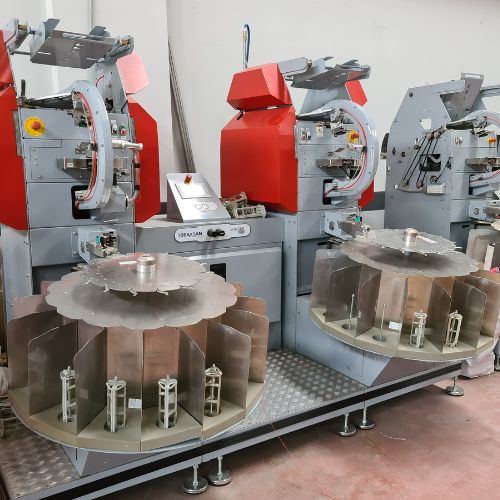Our involvement with your business goes beyond traditional safety and guidance.
A shareholders agreement is an agreement entered into between all or some of the shareholders in a company. It regulates the relationship between the shareholders, the management of the company, ownership of the shares, and the protection of the shareholders. They also govern how the company is run.
It may be usual to combine the use of a shareholders’ agreement with a specifically drafted set of articles of association for your company.
Shareholders’ agreements are often used as a safeguard and to give protection to shareholders, because (amongst other things) they can provide for what happens if ‘things go wrong’.
An agreement can provide for many eventualities including the financing of the company, the management of the company, the dividend policy, the procedure to be followed on a transfer of shares, deadlock situations, and valuation of the shares.
The absence of a shareholders’ agreement opens up the potential for disputes and disagreements between the shareholders. Shareholders’ agreements contain provisions that preempt disagreements and set out appropriate ways for disputes to be addressed.
Too many times people set up companies with friends and relatives and do not consider protecting their interests in the company until it is too late. The articles of association of the company may not offer a shareholder full protection.
Generally, in small private companies, there are usually few shareholders, and the shareholders are often the directors in the company. This is when a shareholders’ agreement becomes helpful because the minority shareholders, the majority shareholders, and those holding shares equally want to ensure that their rights are protected, usually in ways that are not covered in the articles of association of the company.
A large number of shareholders’ agreements are designed to contain provisions intended to protect the minority shareholders (i.e. any person(s) with less than 50% of the issued share capital in the company) or those with equal shareholdings (i.e. 2 shareholders holding 50% each of the shareholding or a company with 3 shareholders who all hold 1/3 of the shares each).
A minority shareholder in a private company is a particularly vulnerable person. This is partly because there tend to be much fewer shareholders in a private company. This means it is more likely that control of the company will be held by one or two persons. There is generally no market for the shares of a private company, and a shareholder who is unhappy at the way a company is being run does not have the option of selling those shares. The concentration of control in one or two shareholders can lead to abuse of power, even where no single shareholder holds a majority.
For example, without a shareholders’ agreement, a shareholder who is also a director could be removed from his position as director, by a mere 50% of the other shareholders voting him out. This gives him very little security and would leave him with a shareholding in a company in which he no longer has any management rights.
Shareholders’ agreements are not just designed for those shareholders who hold less than 50% of the shares in a company. In many cases, such agreements are drafted for the majority shareholder.
The majority shareholder may wish to curb the powers of the directors if he does not have a majority representation at the board level, or if he does not take an active part in the running of the business.
In the alternative, the majority shareholder may not want to include any minority protection provisions but may want to be able to ensure that if a buyer for the company comes along he can sell all the shares in the company, forcing the other shareholder(s) to sell their shares. This would stop him from being held to ransom by a minority shareholder. He may also wish to consider appropriate noncompetition and confidentiality covenants and provisions requiring financial input from other shareholders.
As has been previously mentioned if a Shareholders’ agreement does not exist, then any disputes between shareholders/ directors will have to be settled by what is contained within the articles of association.
The articles of association (“the articles”) are one of the sets of constitutional documents of a company. The articles set out the rules as to how a company is run; for example: setting out the division of power between the shareholders and directors and the rights which each will have.
The shareholders’ agreement gives a contractual remedy if its terms are broken; whereas articles may prevent the event from happening in the first place.
The major problem is when there is no shareholders agreement and unamended articles of association deadlock among the directors and where no shareholder has a majority removal of directors. Directors do not always act in the best interests of the Company or the other shareholders and this can be mitigated by amending articles and having a shareholders’ agreement in place.
At Ackroyd Legal, we can draft a Shareholders Agreement to reflect all of your needs and manage any and all requirements of shareholders. We can do this at the commencement of trading or, if your company has grown or is growing, once it has become established and on an ongoing basis.

A shareholders agreement is an agreement entered into between all or some of the shareholders…

Our specialist advisors can advise company officers of the precise formalities involved in the day-to-day…

M&A are transactions that transfer the ownership of a company in order to consolidate this with another…

Commercial agreements, regardless of the stage you are at in your business maturity, are not only…

A corporate transaction is the sale of a company’s assets or a reorganisation of a company…

An MBO is the process of an existing management team within a business acquires that…

Our banking and finance lawyers based across London and the UK provide advice on general…

Procurement simply refers to the buying goods services or constructions by organisations…

Franchising is a strategy adopted by an increasing number of businesses as another route of expansion…

Corporate tax is a direct tax imposed on companies or corporation by the government or jurisdiction…

Private equity consists of capital that is not listed on a public exchange…

A shareholders agreement is an agreement among the shareholders about the directional growth of a business…

An investment fund is a pool of funding supplied by various investors used to collectively…

The franchise operations agreement is a legal binding document between a franchisor and franchisee…

Capital Markets is a generic term and is used interchangeably with financial markets…

Corporate or business disputes can become complicated, and matters may escalate very quickly…

Startups have accelerated over the years and become a popular topic among investors…

The growth of technology and technology backed businesses and products and services in the last 30 years…

GET IN TOUCH

16 Prescot Street,
London, E1 8AZ
Ackroyd Legal is a trading style/name of Ackroyd Legal (London) LLP , which is authorised and regulated by the Solicitors Regulation Authority, SRA No. 554585 and is a LLP registered in England & Wales, Company No. OC360125; VAT no. 445717436;
David Ebert LLP is a separate entity from Ackroyd Legal (London), LLP and are authorised and regulated by the Solicitors Regulation Authority, SRA no. 558176.